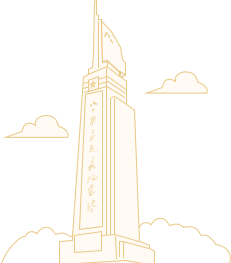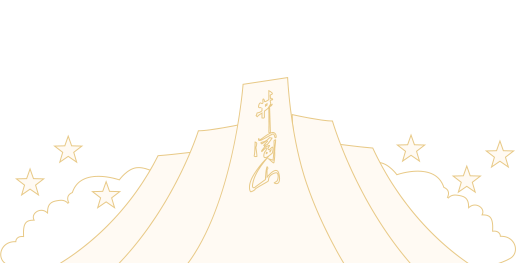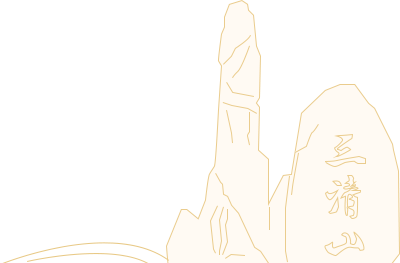Jiangxi University of Chinese Medicine News (Reporters: Yang Qingyue; Photographers: Zhang Anran, Yang Qingyue, Xiong Ling) On July 29, 2021, the Shanghai Cooperation Organization (SCO) Forum on Traditional Medicine grandly opened in Nanchang. The forum, themed “Inheritance, Innovation, Mutual Learning, and Sharing”, was co-hosted by the Good-Neighborliness, Friendship and Cooperation Commission of SCO, the National Administration of Traditional Chinese Medicine, and the People's Government of the Jiangxi Province. It was organized by the Jiangxi Provincial Foreign Affairs Office, Jiangxi Provincial Administration of Traditional Chinese Medicine, China Academy of Chinese Medical Sciences, Health Commission of Jiangxi Province, Nanchang Municipal Government, and Ganjiang New Area Management Committee, with co-organization by Jiangxi University of Chinese Medicine, China Resources Jiangzhong Group, Ganjiang Chinese Medicine Innovation Center, and the World Federation of Acupuncture-Moxibustion Societies. Over 500 domestic and international guests visited the Jiangxi Traditional Chinese Medicine Culture Museum at our university, experiencing TCM practices such as tuina (massage) and herbal sachet making at the Qihuang TCM Experience Center for Foreign Dignitaries, gaining a deep appreciation for the profound heritage of TCM.
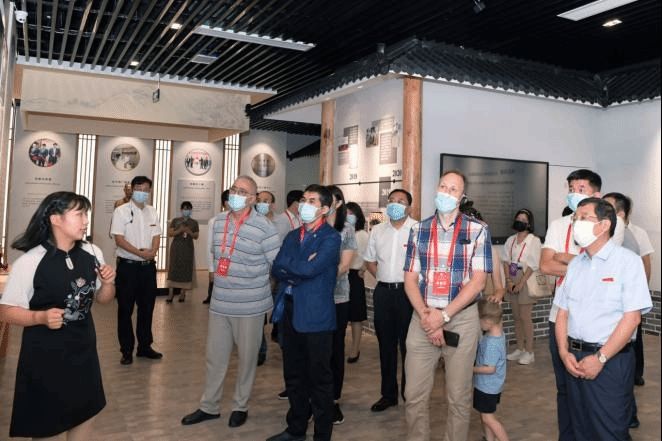
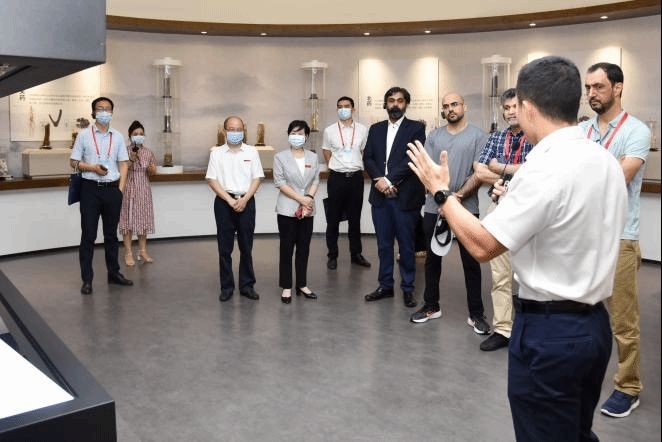
Accompanied by Party Secretary Xu Lanbin, President Zhu Weifeng, and other university leaders, approximately 500 domestic and international guests visited our Jiangxi Traditional Chinese Medicine Culture Museum. They explored exhibits including the Hall of Traditional Chinese Medicine, the Hall of Traditional Chinese Pharmacology, the Jiangxi TCM Specialty Hall, the Herbal Processing Exhibition Hall, the Heat-Sensitive Moxibustion Hall, and the TCM Aromatherapy Center, engaging closely with TCM and gaining a comprehensive understanding of its history and future prospects.
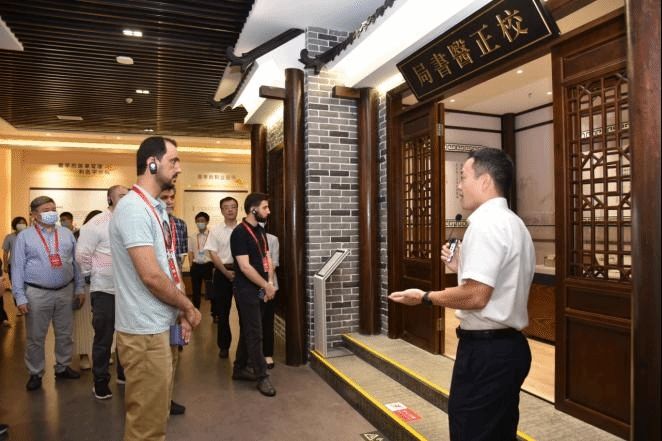
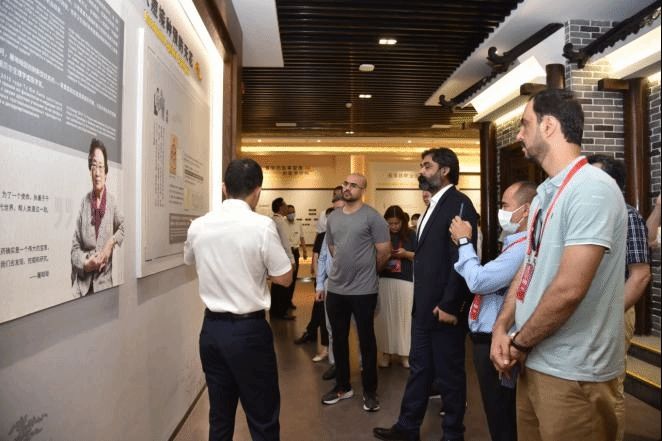
TCM is a discipline deeply rooted in traditional Chinese culture and ancient Chinese science and technology, guided by a holistic philosophy. In the Hall of Traditional Chinese Medicine, exhibits on the Suiren clan's fire-making, the dialogues of Huangdi and Qibo, the inheritance of TCM education, disease prevention and treatment, and the analysis of TCM's Yin-Yang philosophy captivated guests. They expressed that TCM, with its ancient origins and profound depth, embodies millennia of Chinese wisdom, deepening their understanding and appreciation of it.
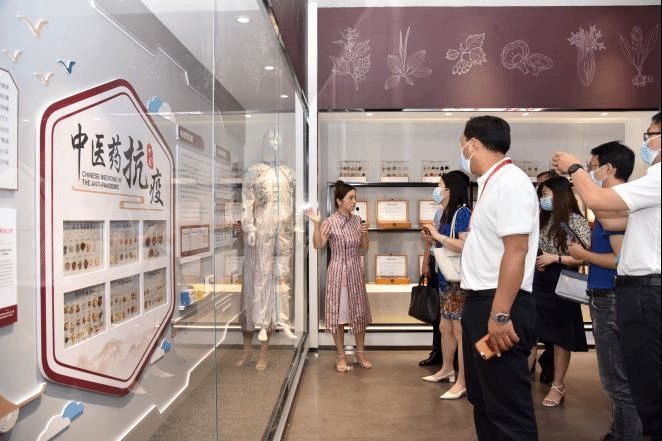
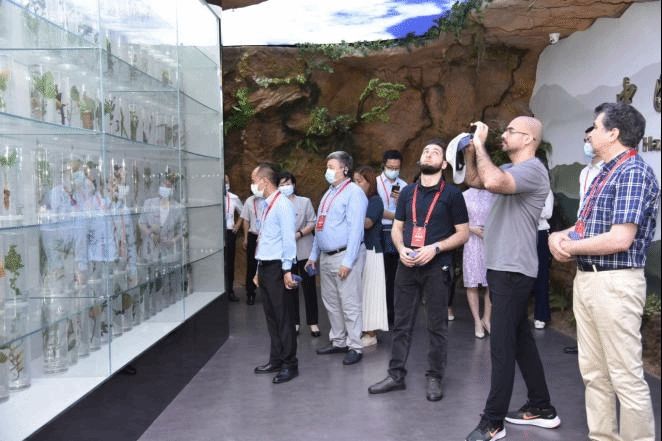
Chinese herbal medicine, derived from nature, is rich in variety. The profundity of TCM lies in its ability to formulate herbal prescriptions according to specific principles to treat various conditions. Classic TCM formulas played a significant role in combating the COVID-19 pandemic. In the Hall of Traditional Chinese Pharmacology, an array of herbal specimens drew guests' attention. Professional explanations highlighted Jiangxi's rich herbal resources, and during the exhibit on TCM's role in epidemic control, guests marveled at its remarkable efficacy and significant contributions to combating the pandemic.
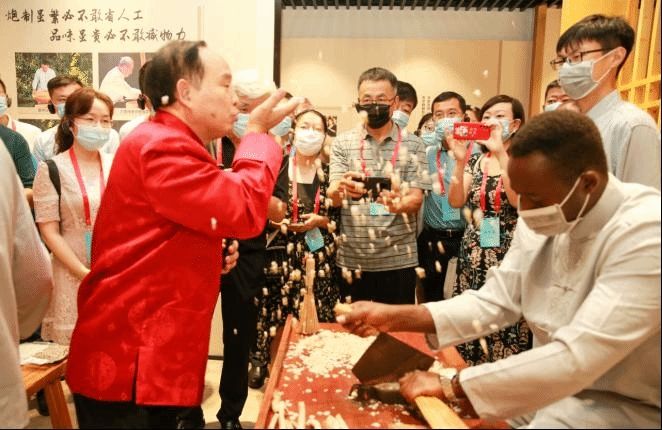

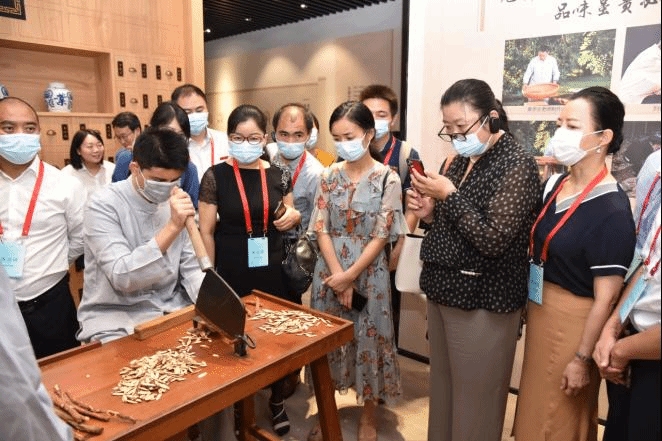
Jiangxi's TCM culture boasts a long history and profound heritage. Xujiang Medicine is one of China's four renowned regional medical schools, while Zhang and Jianchang are two of the four major herbal processing schools, celebrated for their exceptional processing techniques. In the Herbal Processing Exhibition Hall, guests engaged directly with renowned processing experts, witnessing the Zhang school's famed technique of slicing one-inch Paeoniae Radix Alba (white peony root) into 360 pieces—“White Peony Soaring to the Sky”—and the traditional craft of water-honeyed pill preparation.
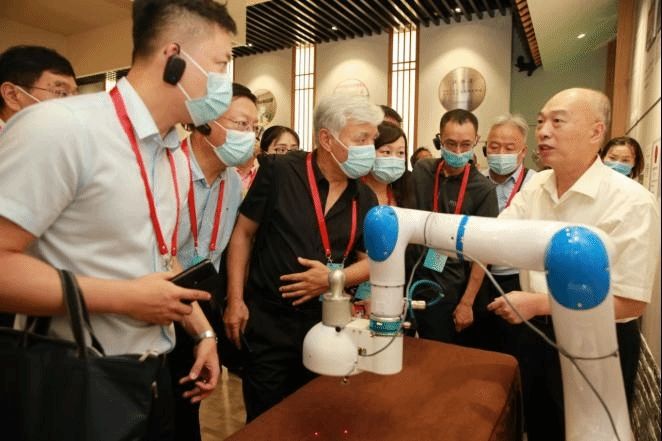
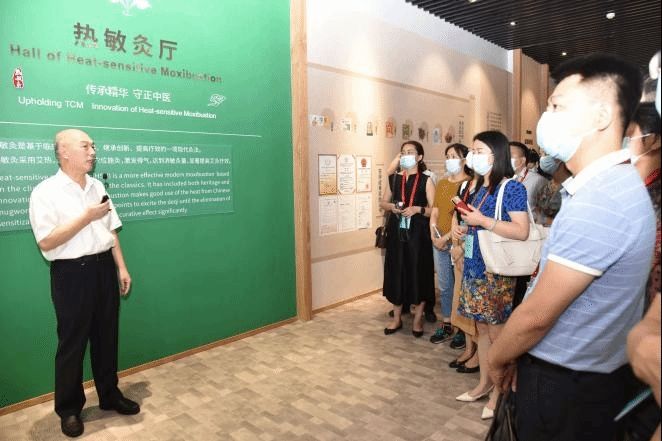
Heat-sensitive moxibustion, a result of Jiangxi TCM's commitment to preserving tradition while innovating, is a modern moxibustion technique developed by our university's Chen Rixin team, which won the Second Prize of the National Science and Technology Progress Award. In the Heat-Sensitive Moxibustion Hall, the technique's founder, Chief Professor Chen Rixin, explained the mysteries of heat-sensitive moxibustion and showcased its integration with advanced technology—the heat-sensitive moxibustion robot.
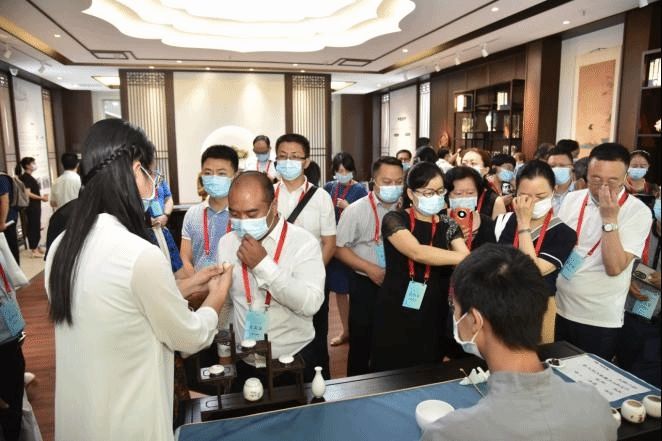
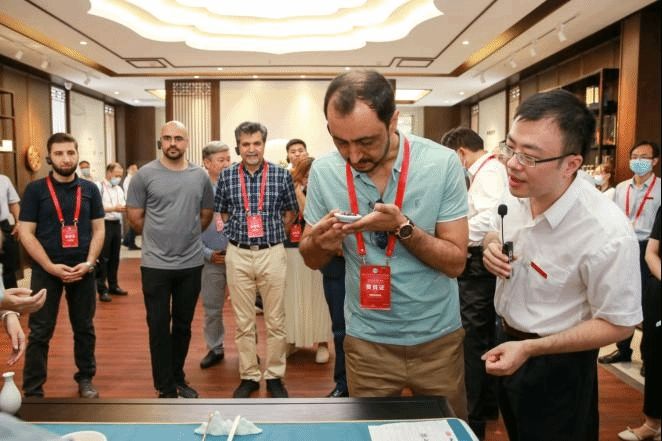
TCM aromatherapy, grounded in TCM theory, utilizes the unique physiological and psychological therapeutic effects of aromatic substances. Through methods such as massage, topical application, fumigation, and oral administration, it targets specific areas or the entire body to prevent, treat, or rehabilitate diseases as a traditional natural therapy. In the TCM Aromatherapy Center, guests experienced the allure of “fragrance” through TCM essential oils, traditional aromatic herbs, aromatherapy tools, incense products, and aromatic beverages.
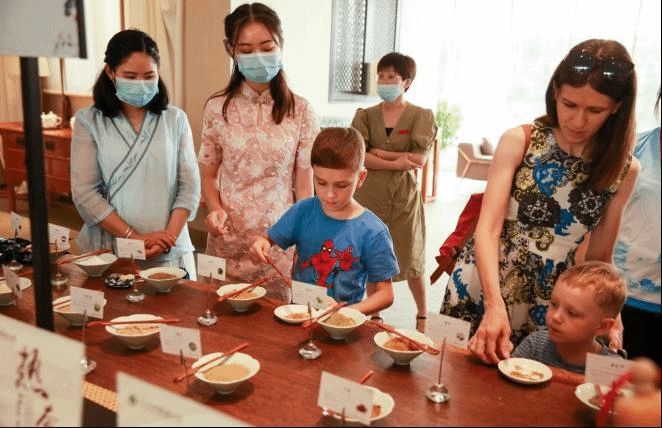
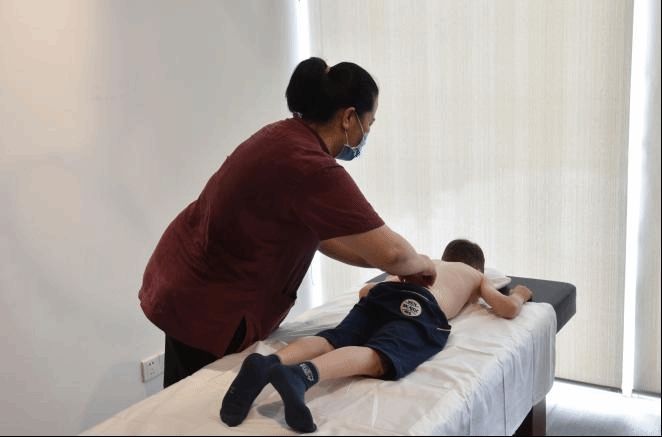
At the Qihuang TCM Experience Center for Foreign Dignitaries, guests personally experienced TCM tuina massage and herbal sachet making, marveling at the integration of TCM with modern life and giving enthusiastic thumbs-up.
Source: Jiangxi University of Chinese Medicine Website
https://djkyjy.jxutcm.edu.cn/info/1022/4307.htm

